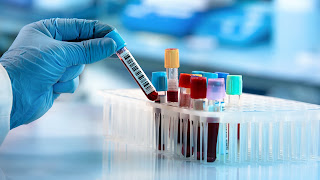Autoimmune disease diagnostics include numerous tests such as urinalysis, autoantibody test, comprehensive metabolic panel, complete blood count, and antinuclear antibody test that aid in the diagnosis of autoimmune diseases. One of the most common blood tests for detecting autoimmune disorders is ANA (antinuclear antibodies). There are over 80 kinds of autoimmune diseases, and sometimes some have similar manifestations. Autoimmune disease is a condition in which the body’s immune system mistakenly attacks healthy cells of the body. The immune system usually guards against germs, such as viruses and bacteria, but when it senses these foreign invaders, it sends out an army of fighter cells to attack them. Autoimmune disease diagnostics may include corticosteroids to reduce inflammation or anti-inflammatory drugs to reduce inflammation and pain.
Autoimmune diseases are not only caused by illnesses, can also result from trauma, radiation poisoning, medication side effects, and more. Moreover, certain diseases such as HIV and AIDS, or infections can also cause significant disruptions in the immune system. Autoimmune diseases are considered to be a modern day disorder, arising mostly from genetics. Most patients with auto-immune diseases do not experience any early warning signs of an impending attack, whereas other patients can experience symptoms as far as several days before a disease erupts. However, symptoms vary widely, based on the type of auto-immune disease.
One of the most common forms of autoimmune disease is Rheumatoid Arthritis, or RA. It is an inflammatory disorder that affects the joints, tendons, and blood vessels in the body. As the disease progresses, blood cells move toward the sites of inflammation, clumping together, and forming into hard masses called plaques. As a result, the body cannot properly absorb nutrients, leaving the sufferer extremely limited in their ability to function properly. Symptoms include joint pain, swelling, redness, loss of use, fever, and fatigue. The joint damage that Rheumatoid Arthritis causes usually happens on both sides of the body. So, if a joint is affected in one of your arms or legs, the same joint in the other arm or leg will probably be affected, too.
Another form of autoimmune disease is Lupus, also known as Systemic Lupus. While it has some of the same clinical symptoms as Rheumatoid Arthritis, it does not cause the same inflammation or clumping of blood cells. Instead, some of the symptoms of Lupus are general fatigue, fever, swollen lymph glands, and night sweats. Like Rheumatoid Arthritis, there is an important correlation between Lupus and nutritional deficiencies. One of the most common symptoms of Lupus is a lack of proper nutrition, causing the body to run low on nutrients and eventually experience all of the classic symptoms of this disease. This form of Lupus often requires a long course of antibiotics to control its progression.
Other forms of autoimmune disease can include Type I Diabetes, wherein the pancreas is unable to produce sufficient insulin to provide the body with energy. In this case, the body is forced to depend on stored glucose from the fat cells for energy production, which is bad news for the kidneys, liver, and other important organs. Some people may even develop Type II diabetes, where the pancreas produces too much insulin, resulting in too little glucose or fat for energy and thus a loss of brain activity and eventually blindness. These auto-immune disorders are related to fat cells as well, as the excess glucose creates an environment where friendly (helper) cells begin to die off.
A number of dietary supplements have also been developed to help treat auto-immune diseases. Some of these treatments work by helping to boost the immune system. Others may act as a prevention measure by helping to regulate the immune system once the disease has occurred. Research has also found some success using natural approaches in dealing with autoimmune diseases. These include increasing the amount of dietary fiber and fluids, drinking more water, and decreasing the use of pesticides in the home and garden. A healthy diet is one of the keys to living a long and healthy life.
However, autoimmune diseases in general cannot be cured, but the condition can be controlled in many cases. Moreover, autoimmune disease diagnostics depends on the identification of disease-associated clinical symptoms and is associated with the detection of autoantibodies.




No comments:
Post a Comment